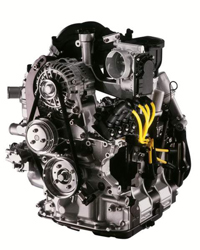P0939 Engine Code Repair
Meaning of P0939 engine trouble code is a kind of powertrain trouble code and P0939 if your catalytic convertor fails completely, you eventually won't be able to keep the car running. Your gas mileage will also be terrible, so you should try and fix it as soon as you can. Unfortunately, the average replacement cost is around $2,140 and you can't do it yourself unless you're an experienced mechanic.
P0939 Fault Symptoms :
- Check engine light comes on
- Engine stalling or misfiring
- Engine performance issues
- Car not starting
If one of these reasons for P0939 code is occuring now you should check P0939 repair processes.
Now don't ask yourself; What should you do with P0939 code ?
The solution is here :
P0939 Possible Solution:

Air Conditioning Pressure Sensor (ACP) Insufficient Pressure Change Each time the A/C clutch engages, the PCM is looking for a pressure change in the refrigerant. If the change in pressure is outside of the calibration the DTC will set. A/C system mechanical failure Open ACP or VREF circuit A/C sensor damaged A/C system electrical failure A/C clutch always engaged Verify A/C system function, including refrigerant charge.
P0939 Code Meaning :
P
OBD-II Diagnostic Powertrain (P) Trouble Code For Engine
0
Intake Valve Control Solenoid Circuit Low
9
Engine Oil Temperature Sensor Malfunction
3
Turbocharger Boost Sensor A Circuit Low
9
Clutch Position Sensor Circuit Malfunction
Is the fuel pump sometimes not priming when you turn the key to ON(II)? Start by measuring the fuel pressure and checking whether you have bright white-bluish spark at all four plugs. The mechanical timing is also something that you should check, as we mentioned above.
P0939 OBD-II Diagnostic Powertrain (P) Trouble Code DescriptionP0939 engine trouble code is about Clutch Position Sensor Circuit Malfunction.Main reason For P0939 CodeThe reason of P0939 OBD-II Engine Trouble Code is Engine Oil Temperature Sensor Malfunction. |
P0939 code on vehicles with electronically controlled automatic transmissions, the 3-4 shift solenoid is responsible for actuating the hydraulic circuits to activate clutches or bands that change gears inside the automatic transmission.
